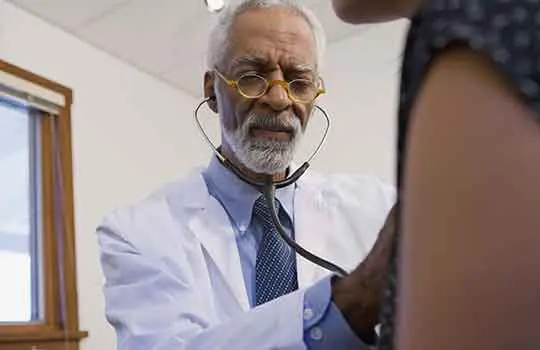Please Don’t Retire!
More and more each year, I worry that my Primary Care Provider (PCP) will retire. There is a shortage of them as well as other specialists for many reasons including that pay has not kept of with the cost of living, heavy workload and burnout leading to early retirement or transition away from patient care, and the time and cost involved in becoming a physician (four years of college, four years of medical school, and at least 3 years of residency training).

This shortage affects everyone and hits some groups harder than others. This is crucial as PCPs perform several important functions that are essential for obtaining quality care. PCPs get to know you over time as a person including but not limited to the community in which you live, your values and priorities, what you do for a living, where you work, and your village (i.e. family, friends). Knowing who you are helps to identify and differentiate quickly major life altering conditions from variations of the normal ups and downs we all experience on the continuum of health. Understanding your values and priorities fosters trust and a partnership that is equal and leads to a treatment or care plan on which you both agree, understand, and are committed to following.
Your PCP helps you find your way or navigate around the very complex system of care in the U.S. and assists with obtaining access to specialists, medication, and other healthcare services. They help to coordinate your care and serve as a central point of contact assuring that all imaging studies, medications, lab results, and consultations by specialists, are reviewed and included in one treatment plan, making sure items are not overlooked or missed. In addition, when you have an unexpected problem, having a PCP as a regular source of care can help you avoid long waits in the emergency room or urgent care, avoid incorrect information, and provide a more holistic approach. A recent example was the COVID pandemic. Those with PCPs had easier access to accurate information and treatment.
Most importantly, they assure continuity of care, which is fundamental to quality care. Medicine is not always an exact science, hence the expression, “art of medicine.†No physician can understand our body language, meaning behind our description of symptoms (ie. pain severity in relation to our pain tolerance), or intentions in seeking care in one 15-minute visit. Each physician that we see for the same problem may come to a different conclusion delaying the diagnosis and solution. The PCP who has gotten to know us over time is able to filter out bias (e.g. assuming drug seeking behavior or non-compliance), consider our history, both medical and social, and apply a holistic approach that leads to a more accurate diagnosis sooner with less cost and frustration.
I have had my current PCP for more than 20 years. He has been with me through many job changes, personal losses, and stages of my life cycle. And he has shared with me milestones in his life including his children’s graduations, their moving out and living on their own, and the first time he became a grandfather. Although I recognize that I am being selfish, a good PCP is
